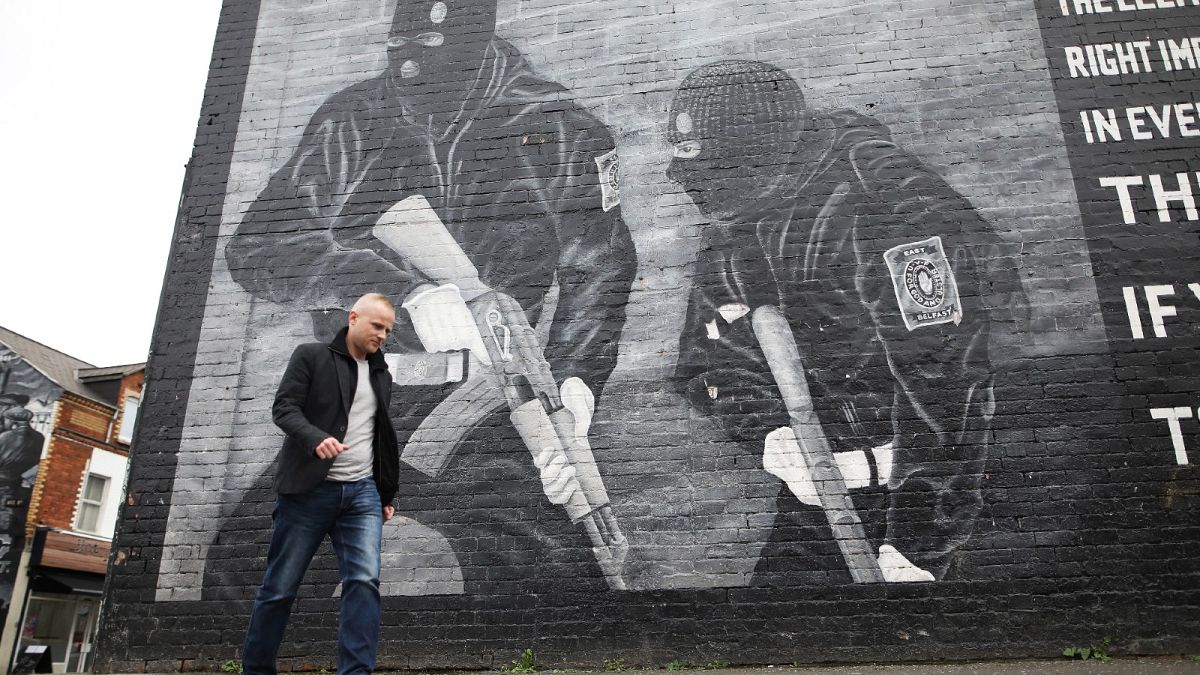Amnesty International says it creates a two-tier justice system and allows grave human rights violations committed during the Northern Ireland conflict to occur with impunity.
Plans by the British government to push through a blanket amnesty for perpetrators of violence during the Northern Ireland conflict will allow the crimes of rapists and sexual abusers to go unprosecuted, UK opposition lawmakers have warned.
"This bill doesn't prohibit anyone who has committed acts of sexual violence during the conflict or has covered it up from seeking immunity," Peter Kyle, Labour Shadow Secretary of State for Northern Ireland, said in a speech during the bill's second reading in the House of Commons.
The Northern Ireland Troubles and Reconciliation Bill has also been criticised by the Irish government, as well justice groups and victims on all sides of the hostilities in Northern Ireland.
They accuse the British government of tearing up the Stormont House Agreement to which the British and Irish governments are both parties and which provides a settled pathway towards substantial investigations into crimes committed by all sides during the Troubles.
Amnesty International says the bill would create a two-tier justice system and allows grave human rights violations committed during the Northern Ireland conflict to occur with impunity.
"If enacted, it would also set a worrying precedent internationally, giving a green light to other countries that want to deny justice to victims of human rights violations," said Grainne Taggart from Amnesty International UK.
"The ‘Troubles’ bill' would sound the death knell for justice for victims of the Northern Ireland conflict", she added.
The plans would offer immunity to anyone willing to admit to causing "serious injury" during the peak period of the Troubles from 1966 until 1998.
"It is vital that MPs stand with victims and reject the Government’s move to legislate for impunity," she said in a statement.
'Victims will never get justice'
The bill is designed to provide protection for British soldiers involved in the killings of Irish civilians while on duty in Northern Ireland including during Bloody Sunday in Derry in 1972 when 13 people were killed, and the preceding Ballymurphy Massacre when 10 unarmed Irish nationalists were killed.
"This bill could lead to someone who has committed rape immunity from prosecution", said Kyle.
"It's so wrong the rule of law can be overruled in this way," he said.
"If the prosecution service in Northern Ireland has the right resources, I'm sure the justice we're talking about could have been dispensed," he said.
Mairia Cahill, a campaigner who was raped by a member of the IRA and then forced to face him in a kangaroo court arranged by the group, said the bill will allow those who have committed crimes of conflict-related sexual violence and those who covered it up to seek amnesty.
"The Tory government is determined to railroad it through, despite opposition from every political party and Northern Ireland victims' groups.
"Not only would it grant immunity in Northern Ireland but for any conflict offence throughout the UK. It means victims will never get justice and while both state and paramilitaries get off scot-free. Sexual violence is a gross violation of a person."
"This Bill will further violate victims and is an appalling affront to justice."
"Brandon Lewis and Boris Johnson should withdraw it immediately. If it continues it will have implications not only for families of those killed but for rape victims also - and for child protection," she told Euronews.
Government being 'completely dishonest'
In response to concerns, the Northern Ireland Office — the UK government representation in Northern Ireland — said "only serious or connected Troubles-related offences that took place between January 1, 1966, and April 10, 1998, and are related to death or serious injury will be eligible for immunity."
But the UK Labour Party and Human Rights groups say this is not the case. We are "absolutely clear" that this bill does not exclude sexual offences and rape from immunity, Kyle stressed.
Former Irish Senator Cahill, meanwhile, accused the Northern Ireland Office of "being completely dishonest here".
"Anyone who raped someone can say they caused 'serious injury' and then access the amnesty," she claimed.
Lawmakers from the ruling Conservative party have also expressed concerns.
Tory MP and former Secretary of State Julian Smith said he is "deeply uncomfortable with voting for a bill that will formalise immunity for those who have committed murder and other crimes."
He reminded the House of Commons of incidents of abduction and murder by the IRA of innocent civilians. Those responsible will walk free under the bill.
"The draft legislation states the conditional amnesty must be granted if an individual gives an account, judged by a state-appointed judicial figure, to be 'true to the best of (their) knowledge and belief'. Once granted, it cannot be revoked," said Taggart.
Those opposed to the bill also say it does not comply with the required standards of the European Convention on Human Rights.
